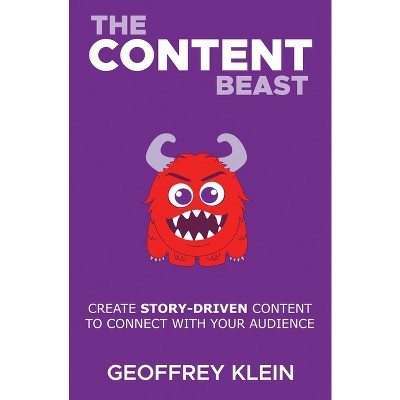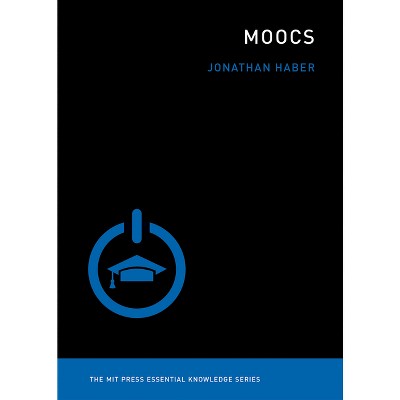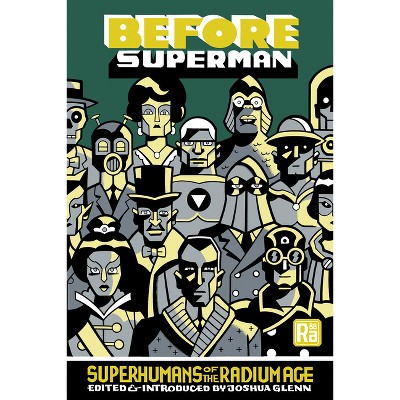Sponsored

Becoming MIT - by David Kaiser (Paperback)
In Stock
Sponsored
About this item
Highlights
- The evolution of MIT, as seen in a series of crucial decisions over the years.How did MIT become MIT?
- About the Author: David Kaiser is Germeshausen Professor of the History of Science, Department Head of the Program in Science, Technology, and Society, and Senior Lecturer in the Department of Physics at MIT.
- 224 Pages
- Education, Higher
Description
About the Book
The evolution of MIT, as seen in a series of crucial decisions over the years.Book Synopsis
The evolution of MIT, as seen in a series of crucial decisions over the years.How did MIT become MIT? The Massachusetts Institute of Technology marks the 150th anniversary of its founding in 2011. Over the years, MIT has lived by its motto, "Mens et Manus" ("Mind and Hand"), dedicating itself to the pursuit of knowledge and its application to real-world problems. MIT has produced leading scholars in fields ranging from aeronautics to economics, invented entire academic disciplines, and transformed ideas into market-ready devices. This book examines a series of turning points, crucial decisions that helped define MIT. Many of these issues have relevance today: the moral implications of defense contracts, the optimal balance between government funding and private investment, and the right combination of basic science, engineering, and humanistic scholarship in the curriculum.
Chapters describe the educational vison and fund-raising acumen of founder William Barton Rogers (MIT was among the earliest recipients of land grant funding); MIT's relationship with Harvard--its rival, doppelgänger, and, for a brief moment, degree-conferring partner; the battle between pure science and industrial sponsorship in the early twentieth century; MIT's rapid expansion during World War II because of defense work and military training courses; the conflict between Cold War gadgetry and the humanities; protests over defense contracts at the height of the Vietnam War; the uproar in the local community over the perceived riskiness of recombinant DNA research; and the measures taken to reverse years of institutionalized discrimination against women scientists.
Review Quotes
Becoming MIT successfully charts the expansion of voices in MIT's perpetual self-reckoning.--Matt Wisnioski, Technology and Culture--
About the Author
David Kaiser is Germeshausen Professor of the History of Science, Department Head of the Program in Science, Technology, and Society, and Senior Lecturer in the Department of Physics at MIT. He is the author of Drawing Theories Apart: The Dispersion of the Feynman Diagrams in Postwar Physics, and editor of Pedagogy and the Practice of Science: Historical and Contemporary Perspectives (MIT Press). Merritt Roe Smith is Cutten Professor of the History of Technology at MIT and the author or editor of six books, most recently Inventing America: A History of the United States. Bruce Sinclair, formerly Melvin Kranzberg Professor of the History of Technology at the Georgia Institute of Technology, is a Senior Fellow at the Dibner Institute at MIT. He has served as president of the Society for the History of Technology and received its Da Vinci Medal. Christophe Lécuyer is Professor of the History of Science and Technology at Université Pierre et Marie Curie and the author of Making Silicon Valley: Innovation and the Growth of High Tech, 1930-1970 (MIT Press, 2005). Deborah G. Douglas is Curator of Science and Technology at the MIT Museum. She was the curator and project director for the MIT 150 Exhibition. David Kaiser is Germeshausen Professor of the History of Science, Department Head of the Program in Science, Technology, and Society, and Senior Lecturer in the Department of Physics at MIT. He is the author of Drawing Theories Apart: The Dispersion of the Feynman Diagrams in Postwar Physics, and editor of Pedagogy and the Practice of Science: Historical and Contemporary Perspectives (MIT Press).Shipping details
Return details
Trending Non-Fiction

















